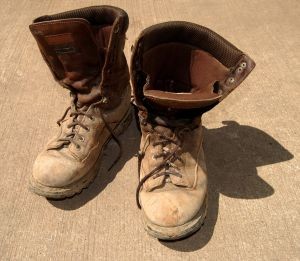Take home asbestos cases are getting a lot of attention across the country. A take home asbestos case deals with the defendant’s duty to warn a so-called non-user of the danger of exposure to deadly asbestos fibers.
 The first thing to understand is what a user of asbestos and a non-user of asbestos mean. A user of asbestos was someone who worked in an asbestos mine, or a factory where asbestos products were used or manufactured, or a builder who worked with asbestos products. One of the biggest uses of asbestos in construction projects was in drywall and wall joint compounds. This means that there as a lot of dust that contained the deadly asbestos fibers being spread around the construction site.
The first thing to understand is what a user of asbestos and a non-user of asbestos mean. A user of asbestos was someone who worked in an asbestos mine, or a factory where asbestos products were used or manufactured, or a builder who worked with asbestos products. One of the biggest uses of asbestos in construction projects was in drywall and wall joint compounds. This means that there as a lot of dust that contained the deadly asbestos fibers being spread around the construction site.
A non-user of asbestos, on the other hand, is someone who is exposed to asbestos through what is known as unintended contact. For example, if a drywall installer got covered in the deadly asbestos fibers while at work, and then came home to his family still covered in the deadly fibers, his children and other family members would likely become exposed to the fibers, as they interact with him and live in a household that has tracked countless asbestos fibers. This is not a hypothetical example, as it happened all time. This issues is whether the company had a duty to warn these non-users about the dangerous asbestos, and according to a recent news article from Tuscon.com,
As you can discuss with your Boston mesothelioma attorneys, the issue deals with what is the first element in any negligence case. The first element that must be established is that the defendant owed a duty of care to the plaintiff. In the case of the worker installing the asbestos-laden drywall or working with other types of asbestos material directly, there is very little question. However, in the case of these people at home called non-users, there is more of a question across the country. This is still a hot issue in Massachusetts and should be discussed with your asbestos attorney during the initial consultation.
If there is no duty of care owed to the plaintiff, then there is no basis for a negligence claim to succeed, and that is what happened in this Arizona case. In that case, the state court of appeals ruled that these companies had no duty to warn the family members of workers in take home asbestos cases, even though it was clearly foreseeable that these workers would come home to their families covered in deadly asbestos fibers. This was considered a case of first impression in Arizona, meaning that it had not been addressed by the courts before.
The appellate judge who wrote the opinion said the court is aware that other states have chosen to find defendants did owe a duty of care in take home asbestos cases, but under the law in their state, that was not the way it should work there.
If you or a loved one is diagnosed with mesothelioma in Boston, call for a free and confidential appointment at (617) 777-7777.
Additional Resources:
Court: Arizona companies not liable for asbestos taken home on clothing, September 22, 2016, Howard Media Services, Tuscon.com
More Blog Entries:
Grant v. Foster Wheeler, LLC – Proof of Asbestos Defendants’ Products as Proximate Cause of Injury, July 5, 2016, Boston Mesothelioma Lawyer Blog
 Mesothelioma Lawyers Blog
Mesothelioma Lawyers Blog

